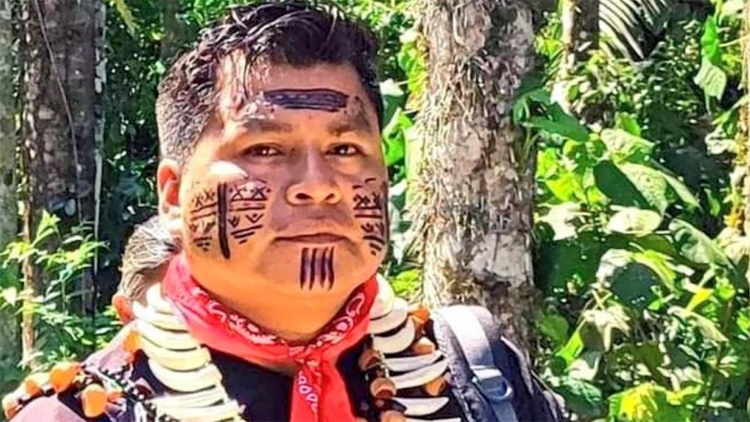
Church in Amazonia decries murder of indigenous activist in Ecuador
By Linda Bordoni
Armed men attacked Eduardo Mendúa on Sunday and shot him 12 times while he was in his own garden in the town of Dureno, in the northeastern Ecuadorian Amazon.
Mendúa, a Cofan indigenous leader, was a member of the Confederation of Indigenous Nationalities of Ecuador. He was also part of a group of activists who for decades have been fighting to block Ecuador’s state-owned oil company from expanding its drilling in the region of Sucumbíos.
REPAM
Bishop Rafael Cob, President of the Pan-Amazonian Ecclesial Network (REPAM) and Apostolic Vicar of Puyo, said, "We raise our voices denouncing this murder and asking for justice".
“As human beings sensitive to the pain of the indigenous people, we cannot remain speechless, much less in the face of an act of such gravity,” the bishop added, as he addressed the Regional Assembly of the Bolivarian countries taking place in Quito.
Especially, he continued, from the perspective of REPAM, “an organization directly committed to the defense of life in the Amazon”, it is time to act as a prophetic Church that, in solidarity, feels the duty to denounce this type of crime that visibly affects the leadership of the Amazonian peoples.
The horrific health and environmental impacts of oil production have been affecting Indigenous communities in the Ecuadoran Amazon for many years. Over ten years ago they won a lawsuit against oil giant Chevron, over the spilling of billions of gallons of crude oil, which contaminated the water and soil and caused an enormous increase in cancer rates among local communities.
Bishop Cob called for an investigation into the “cowardly” murder of Mendúa.
"Our brother was a leader of the Confederation of Indigenous Nationalities of Ecuador,” he said, “a person who denounced the abuses against the population", reiterating REPAM’s demand that “the murder of this indigenous leader not go unpunished".
He also pointed to the need to maintain dialogue between the indigenous peoples and the Ecuadorian government.
"We ask that the people be listened to and we raise our voices in the face of any injustice”, he concluded, highlighting the need “to seek paths that do not lead to violence but invite us to constructive reflection without ceasing to think of the pain of others".
Thank you for reading our article. You can keep up-to-date by subscribing to our daily newsletter. Just click here










